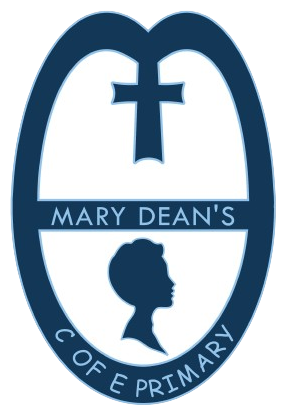'At Mary Dean's CE Primary School, our Geography curriculum fosters understanding of the world, its cultures and environments, promoting critical thinking and environmental responsibility.'

'Every child is a Geographer'
Our Geography Intent:
At Mary Dean's CE Primary School, our Geography curriculum aims to foster a deep understanding of the world, its diverse cultures, and environments. By exploring local and global geographical concepts, students develop critical thinking, environmental awareness, and a sense of responsibility towards our planet.
Our Geography curriculum links to our school's core values:
Our place in the world: our geography curriculum helps children understand the interconnectedness of global and local environments. Through studying diverse cultures, ecosystems and the impact of human activities, children develop a sense of responsibility and belonging, recognising their role in caring for and contributing to the global community.
Our wellbeing: our geography curriculum supports a sense of environmental stewardship and mindfulness about the natural world. Through exploring landscapes, climates and ecosystems, students gain an appreciation for nature and learn the importance of caring for our planet.
Our voice: our geography curriculum empowers children to understand and discuss global and local issues. Through exploring different cultures, environments and human impacts on the world, students develop the knowledge and confidence to articulate their ideas, share their perspectives and advocate for positive change in their communities and beyond.
Our aspirations: through studying various cultures, environments and global challenges, children are encouraged to think about their future roles as global citizens. This exploration nurtures their ambition and broadens their horizons, motivating them to aspire to make positive changes in the world.
Our Implementation:
We follow the National Curriculum for Geography.
The National Curriculum aims are to ensure all pupils:
- Develop contextual knowledge of the location of globally significant places – both terrestrial and marine – including their defining physical and human characteristics and how these provide a geographical context for understanding the actions of processes.
- Understand the processes that give rise to key physical and human geographical features of the world, how these are interdependent and how they bring about spatial variation and change over time.
- Are competent in the geographical skills needed to:
-collect, analyse and communicate with a range of data gathered through experiences of fieldwork that deepen their understanding of geographical processes
-interpret a range of sources of geographical information, including maps, diagrams, globes, aerial photographs and Geographical Information Systems (GIS)
-communicate geographical information in a variety of ways, including through maps, numerical and quantitative skills and writing at length.
We develop the children's geographical skills by focusing on a different skills in each lest lesson. We will pitch lessons using the progression of skills document and ensure lessons are adapted to suit all learners make progress in each skill. We ensure children know which skill we are focusing on and what it takes to be a good Geographer.
See our geography pathways, knowledge and skills progression and curriculum documents below.
Our Geography curriculum impact:
Children will leave each year with the knowledge and skills required to enable them to access and apply to subsequent learning. Children will know, apply and understand the specified content for each topic. Children will be assessed using the key performance indicators for each unit through a range of formative and summative assessments. We use retrieval practice to ensure children are over learning and retaining key concepts. At the end of a topic, children will be given key tasks to apply what they have learnt, along with a low-stakes knowledge quiz to see what children have remembered. Children will be aware of different places around the world and world events and their contribution to the world. Children will be able to make links to previous learning and understand the relevance of these connections. Children will be assessed on their geographical skills using the topic covers, so children know their next steps in learning.
